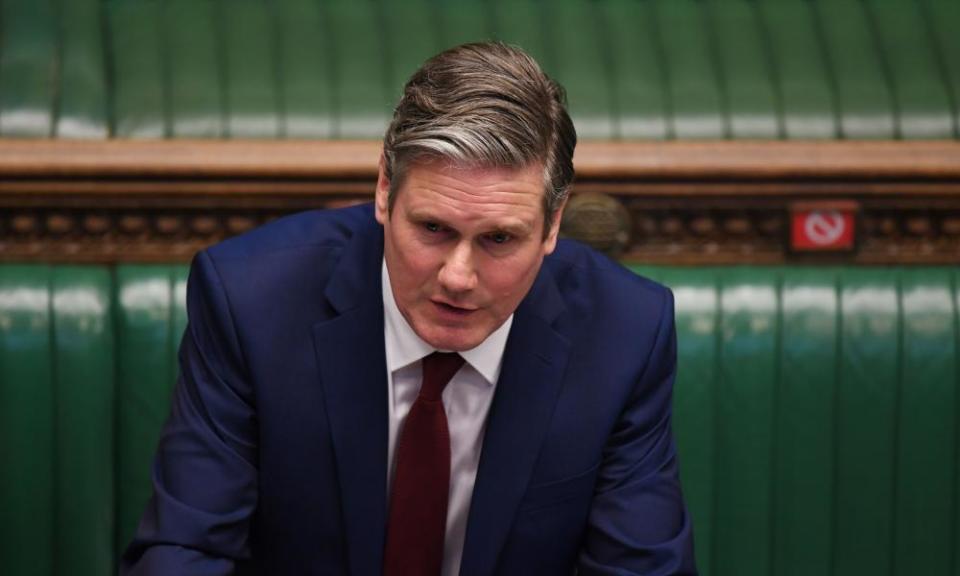A timeline of PM's U-turn on NHS surcharge for migrant health workers
26 April
At the daily government coronavirus press conference, the home secretary, Priti Patel, said the surcharge was “under review” when challenged on the issue, adding: “We are looking at everything, including visas and surcharge.”
16 May
Three weeks after Patel said the policy was under review, it emerged that the Home Office did not specifically review the surcharge, only temporarily exempting NHS workers whose visas were due to expire before October by extending their visa for free for one year.
18 May
The shadow home secretary, Nick Thomas-Symonds, urged a government rethink, saying on BBC Radio 4’s Today programme: “I think that it is totally unfair on the one hand to be saying thank-you to those foreign-born workers we have in our NHS, and then charging them for actually using it.”
20 May

At PMQs, the Labour leader, Keir Starmer, challenged Johnson on the issue, saying: “Does the prime minister think it is right that care workers coming from abroad and working on our front line should have to pay a surcharge of hundreds, sometimes thousands of pounds to use the NHS themselves?”
The prime minister defended the decision as “the right way forward”. But in the evening, rebellion started brewing among backbench Conservative MPs, with three influential Commons committee chairs backing Starmer’s calls.
William Wragg, chair of the public administration and constitutional affairs committee, tweeted: “Now is the time for a generosity of spirit towards those who have done so much good. I am sure that Conservative colleagues will be supportive.”
21 May
Hassan Akkad, a Syrian hospital cleaner whose viral video on the NHS bereavement scheme for migrant workers led to a government U-turn, said on Good Morning Britain: “It’s unfair, it’s unjust, and I would argue that it’s inhumane. For most cleaners and porters this is two weeks’ salary.”
Jeremy Hunt, who introduced the fee in 2015 during his time as health secretary, added his voice to calls for it to be scrapped, saying: “Low-paid frontline health and care workers need to be thought about differently.”
A government spokesperson continued to defend the position, saying the NHS “needs funding”. But later government sources were quoted as saying the prime minister had been “thinking hard” about the position before a statement was released saying: “Work by officials is now under way on how to implement the change and full details will be announced in the coming days.”
At the daily government press conference, when asked why Johnson had changed his mind, the health secretary, Matt Hancock, said the prime minister was talking about the surcharge in general, whereas now he was talking about exemptions.
Nearly a month after her cancelled review, Priti Patel tweeted: “Given these extraordinary circumstances, Matt Hancock and I are working together to remove NHS and care workers from the NHS surcharge as soon as possible.”

 Yahoo News
Yahoo News 
